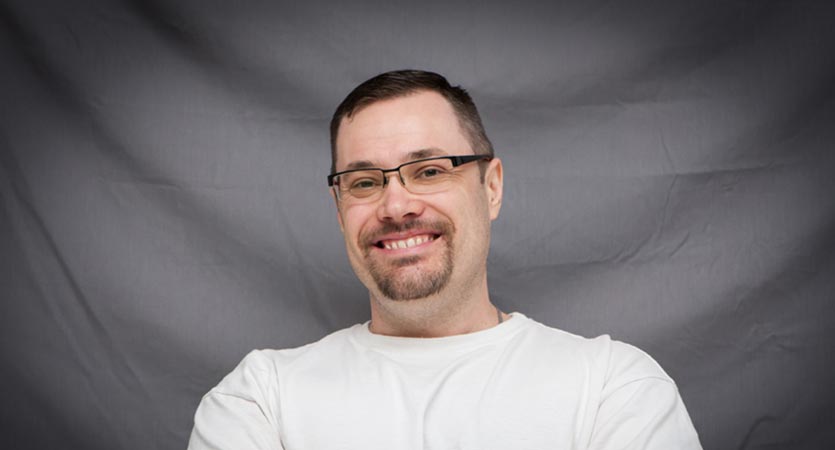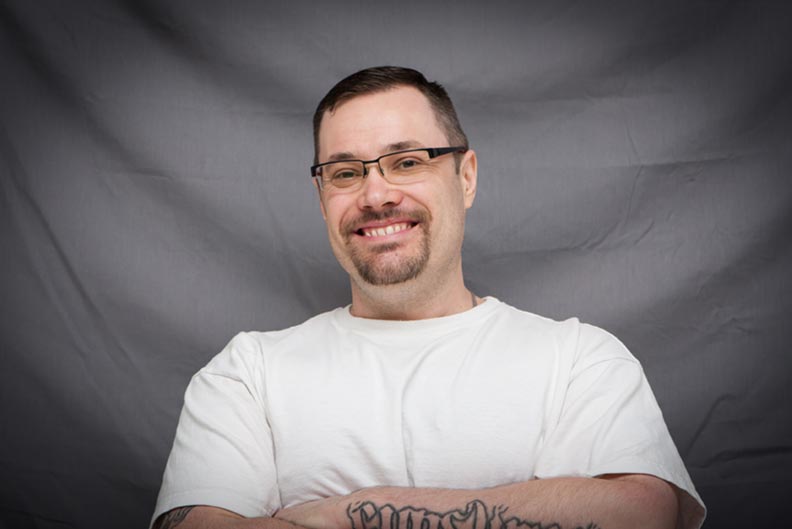
Just A Kid
by Christopher Blackwell
Christopher Blackwell is incarcerated at the Washington State Reformatory in Monroe, Washington, and is working toward publishing a book on solitary confinement. His writing has been published by The Washington Post, HuffPost, Jewish Currents, The Marshall Project, and many other publications. He is serving a 45-year sentence.
My first experience with the carceral state came at the young age of 12. I stole a car — looking to impress a couple of girls — and ended up receiving a year in a juvenile prison.
Being young, growing up in an impoverished community, I had a deep distrust for authority. In my neighborhood, nobody talked to or trusted the police, and from a very young age this was imprinted on me.
While in the juvenile prison, I refused to follow rules and be controlled by authority figures — I rebelled, constantly. This led to my first experiences with solitary confinement, an experience that solidified my distrust for authority figures forever and drove me into a deep hate for “the system.”
It’s hard to remember what led to me being taken to solitary the first time, but what took place has been etched upon my memories for eternity.
I was standing there — small, pale and skinny — I couldn’t have been more than 100 pounds. I remember feeling embarrassed and defeated, trying hard not to let it show. I had just been stripped of all my clothing, except my boxers, and was yelling and screaming. I had to fight back, in some form, that’s all I remember thinking. But the more I resisted, the more those guards tried to control me. This led to me being hogtied by the oversized guards. To me, at the time, they seemed large enough to be NFL players — giants next to my slim hundred-pound frame.
"I remember feeling embarrassed and defeated, trying hard not to let it show. I had just been stripped of all my clothing, except my boxers, and was yelling and screaming."
After they had achieved their goal of fully dominating me, I was left in the cold cell, laying on the dirty floor, breathing hard and crying. I was mad that I had become weak enough to let them see me cry — I knew better than to let bullies see me cry. Where I was raised that only made things worse.
What seemed like hours later, my energy stripped from me, not a tear left in my eyes to be shed, the guards returned. They asked if I was ready to follow the rules now? My ankles and wrists hurting from the restraints, I was willing to say whatever they wanted for relief from the pain. All I kept thinking was, they had won this battle, but I would never be the same, and I would never trust anyone in a position of power again.
Released from the restraints, I stood up waiting for the clothing only they could provide. One of the large guards dropped my clothes on the floor and told me to hurry up and get dressed. I did as he said, refusing to make eye contact with him. I didn’t want the guards to see the pain I felt, or the redness in my eyes from the tears I cried. When I stole a glance at them, I knew they thought they had won, but they had no clue the seeds they had planted in me.

"I did as he said, refusing to make eye contact with him. I didn't want the guards to see the pain I felt, or the redness in my eyes from the tears I cried."
Many more trips to solitary confinement followed after this initial experience. I refused to comply with what I felt was a constant abuse of power and guards refused to allow me to rebel without punishment for my actions. This back and forth never facilitated a single thought that I should change my behavior, it only continued to push me to distrust the system even more, further distancing me from feeling as if I could ever be a part of society.
Now, 39-years-old, I know the damage those trips to solitary confinement caused. I have spent over a decade rehabilitating myself and processing the traumas I’ve caused and suffered. I know none of those trips to solitary were for my own good, but simply an easy way for guards to control me — oppression through fear.
Still involved in the carceral state, I see the same practice used on my fellow prisoners every day. Young adults are abused and mistreated through archaic practices. Solitary confinement is used as a form of punishment meant to control and dominant, not rehabilitate.
If our juvenile prisons and the Department of Corrections are truly looking to release individuals as functioning members of society, they must stop being reliant on solitary confinement as a means to control incarcerated individuals. The effort needs to be placed in trust building and rehabilitative programs that address the traumas many of us struggle with. The system’s energy needs to be geared toward helping us develop skills that lead to formerly incarcerated individuals living a successful life on the outside. This happens with the development of one’s confidence and self-esteem — building us up, not continuously breaking us down. Locking someone — isolated — in a cold concrete box doesn’t make them want to correct their behavior. This is especially true for those under the age of 25. Science has proven these young adults have an underdeveloped brain that leads them to make choices without contemplating the future ramifications. The practice of solitary confinement as punishment makes prisoners feel as if they don’t belong anywhere, that they are less than, and even disposable.
